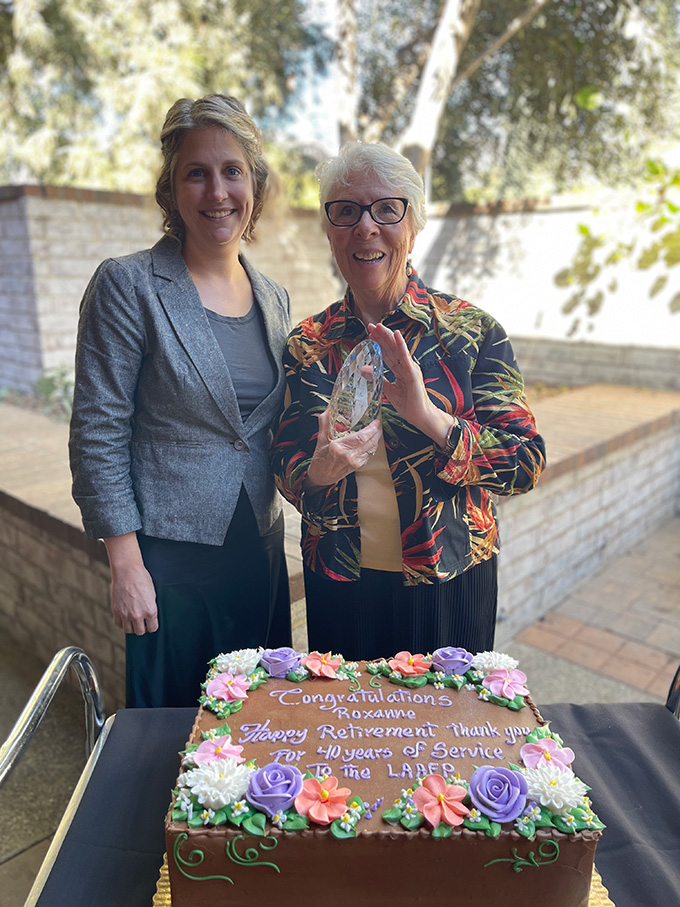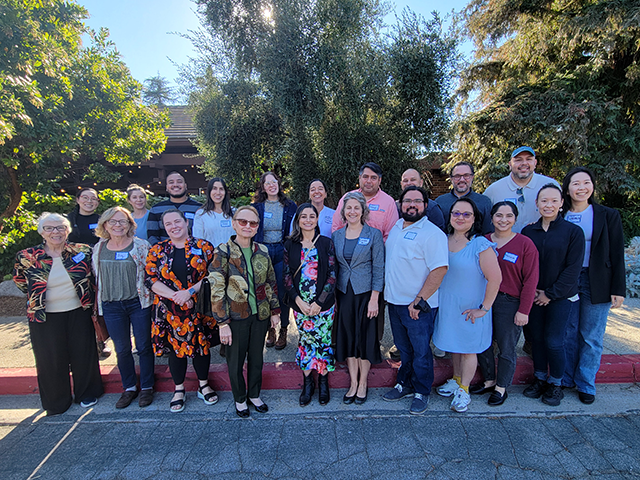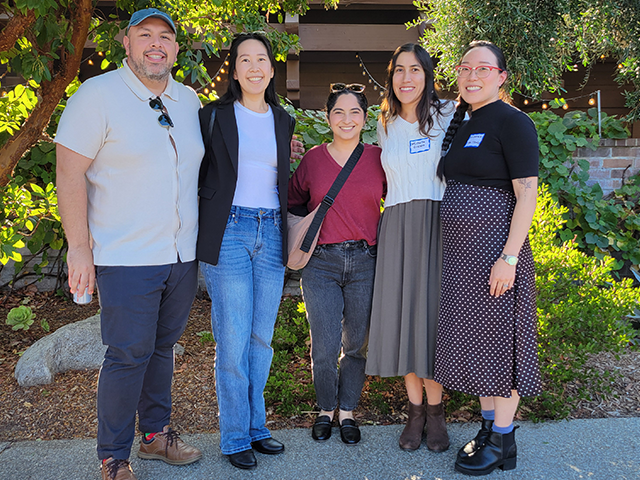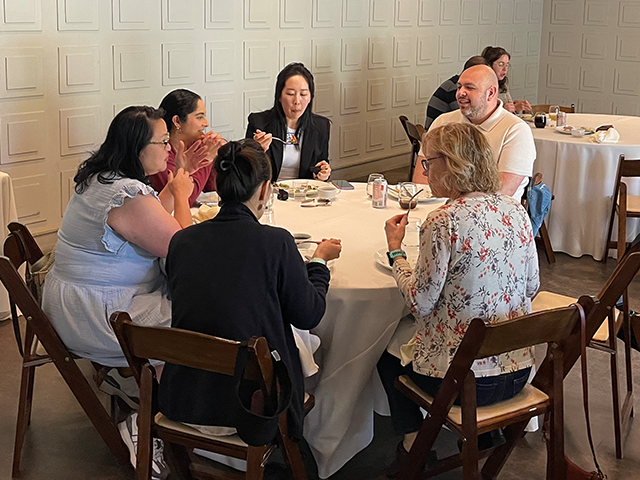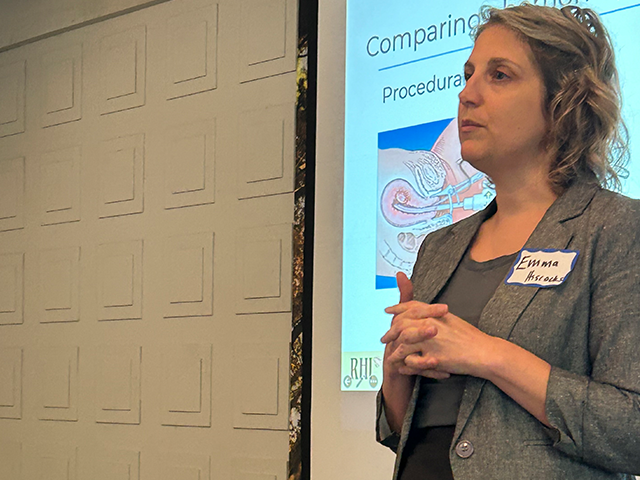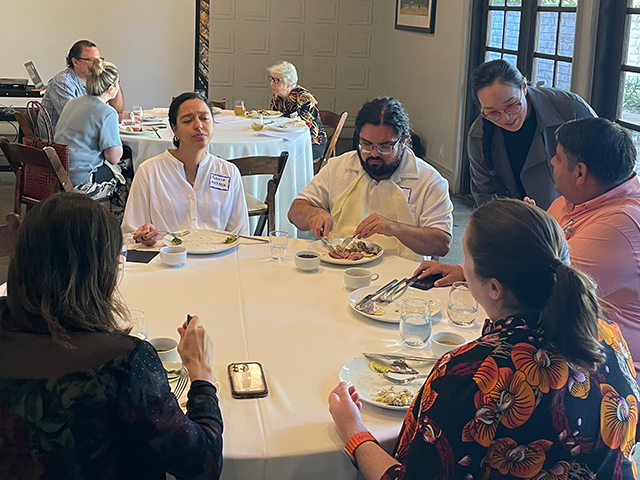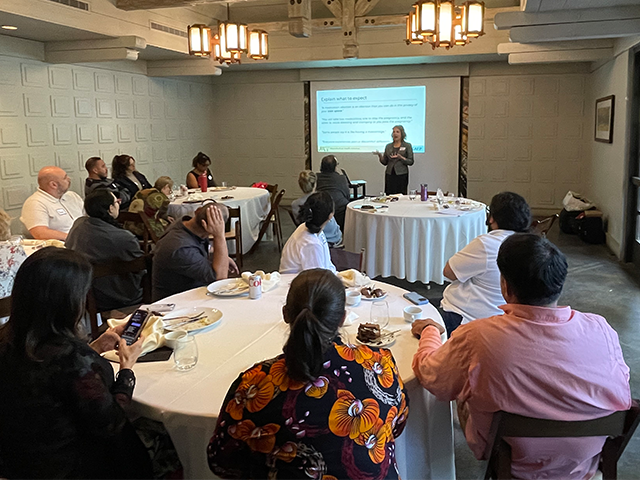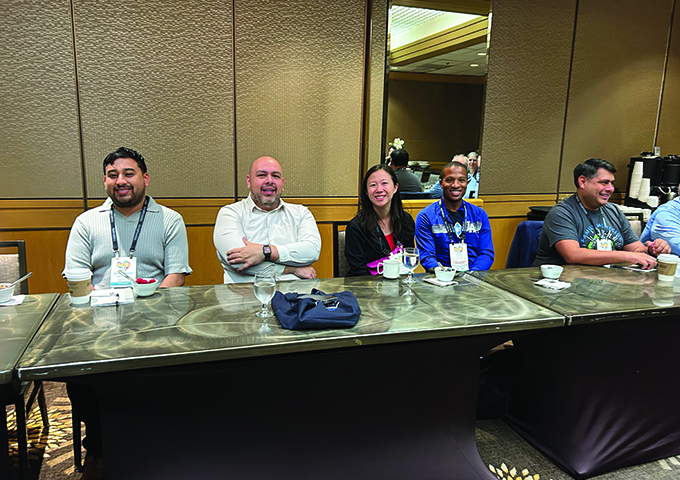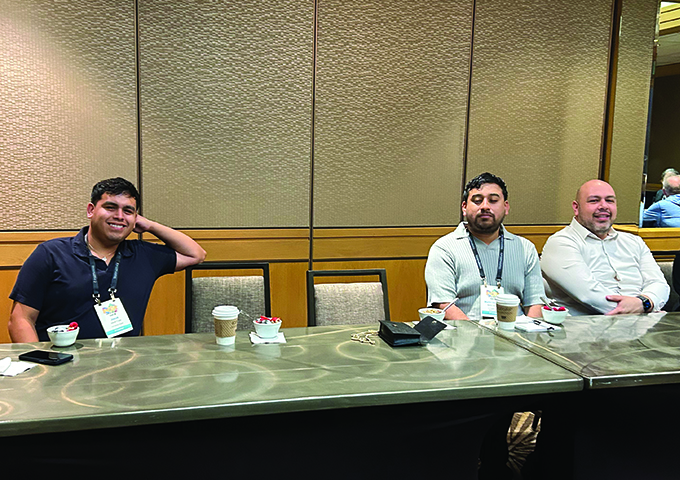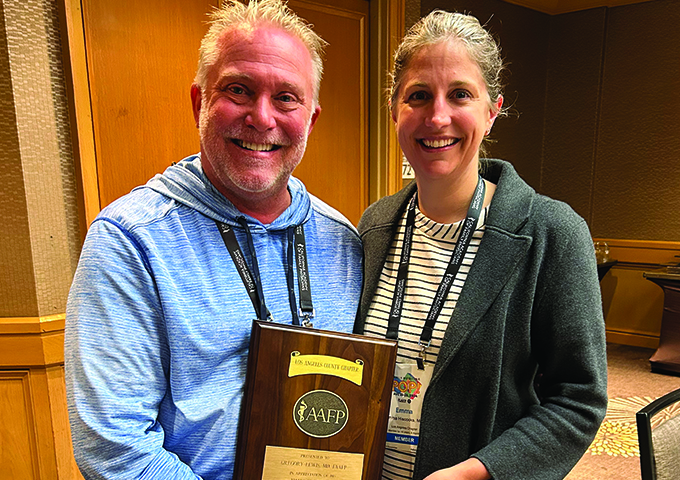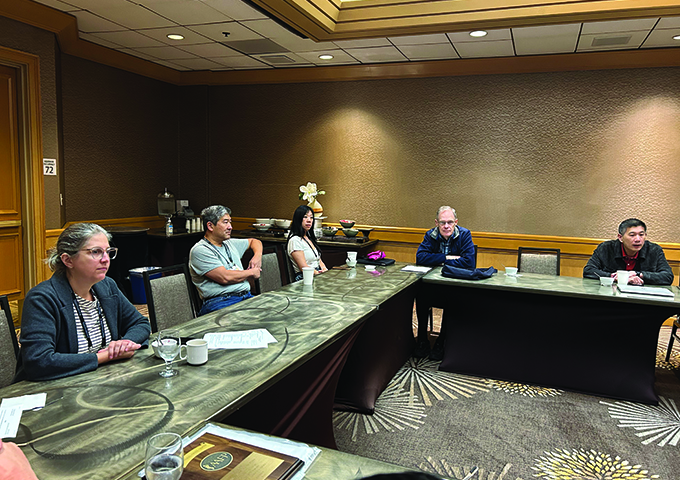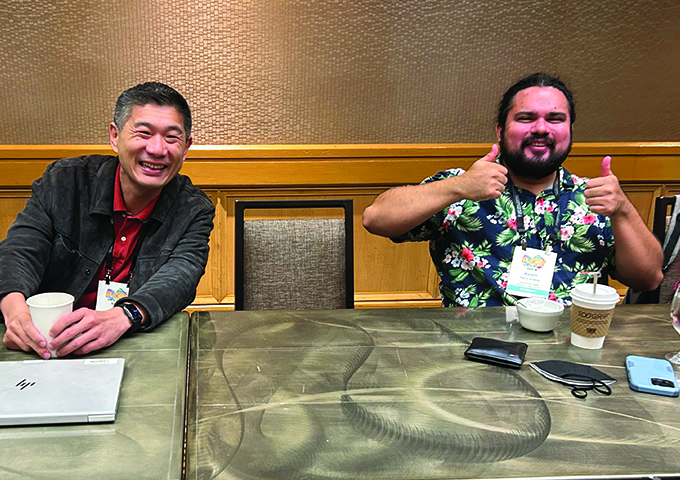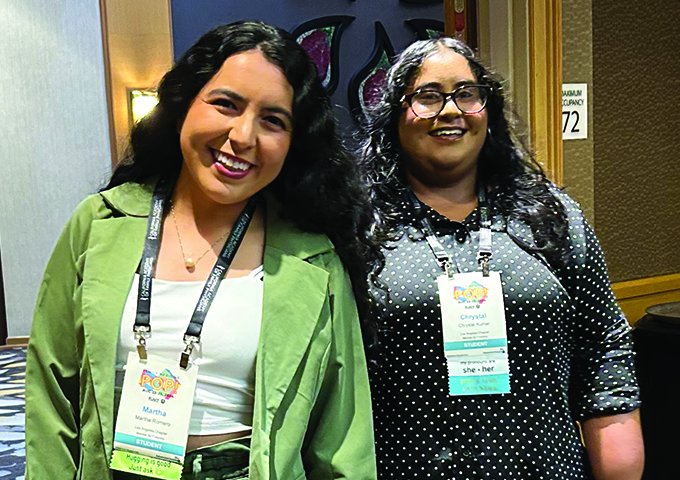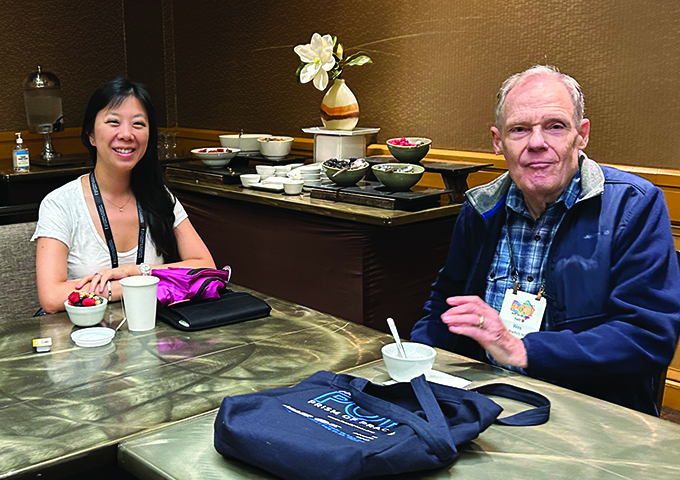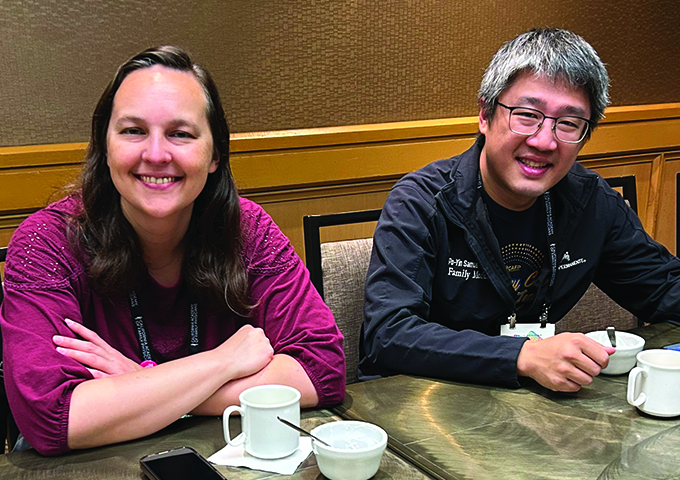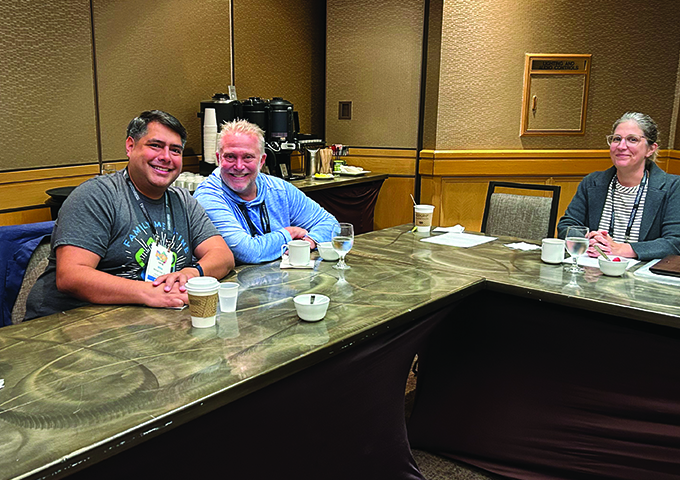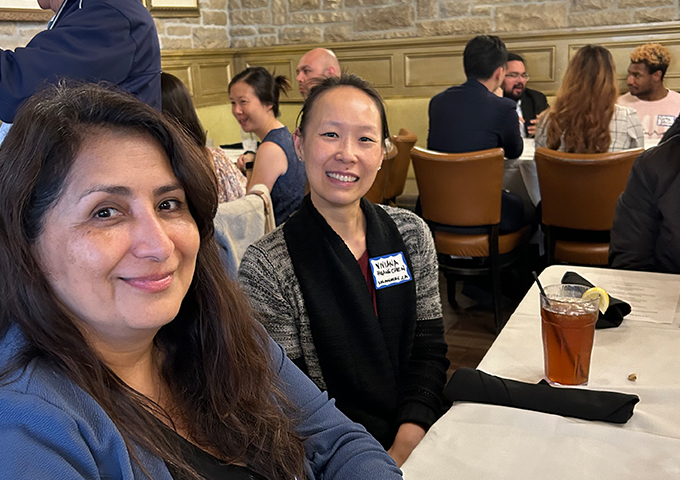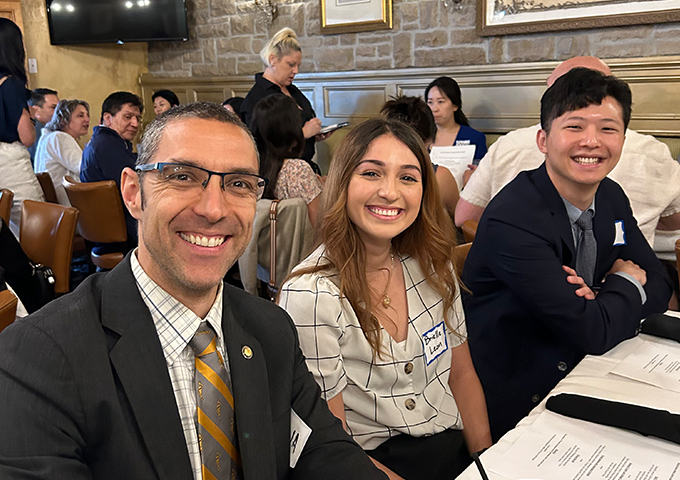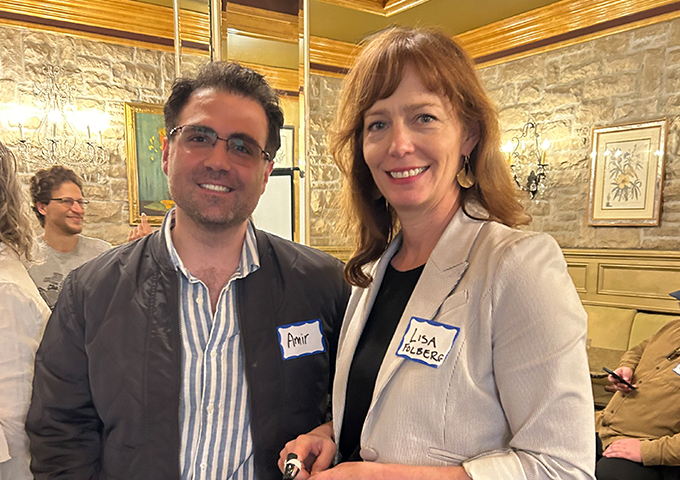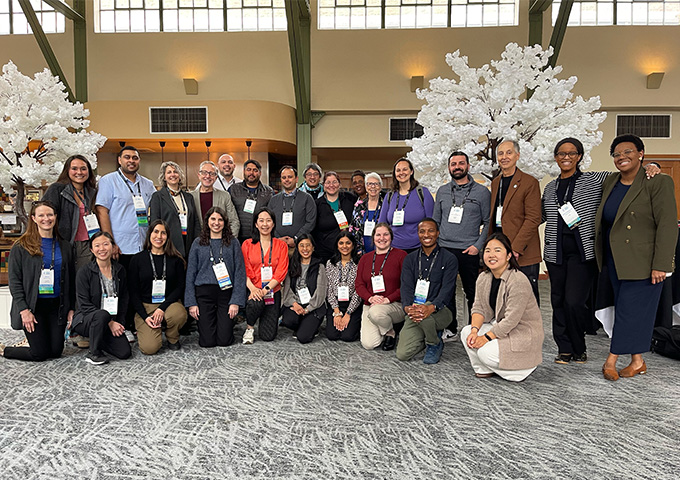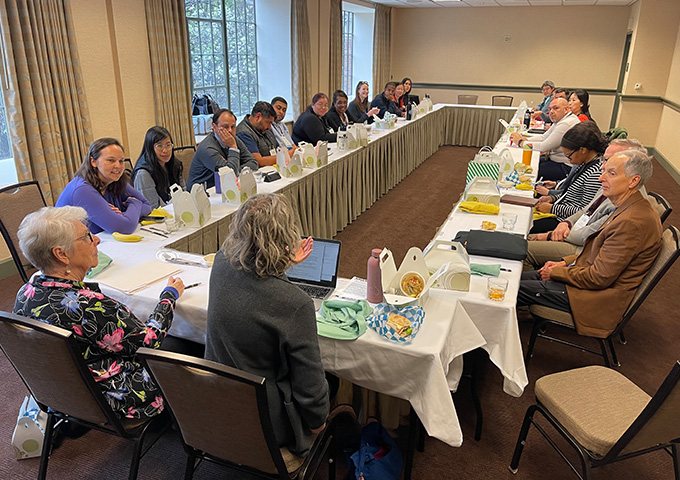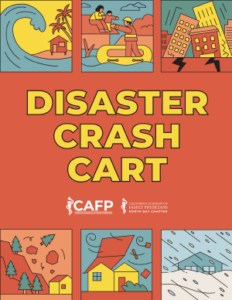Amir Nader Bahmani, MD
Riverside Community Hospital, FM Resident
Incoming PGY1
As a first-time attendee at the AMAM conference, I was surprised by the number of physicians involved in changing health policy and their enormous efforts to amend current legislation. AMAM aims to provide tools and information to help develop family physicians trained and dedicated to effectively advocating for their patients and specialty. AMAM delivers the opportunity for family physicians to bring policy issues of urgent concern to the Academy for consideration.
During the first day of conferences, there was a great discussion about the 17 resolutions proposed by some physicians about a broad range of issues from women’s health to the scope of practice of family physicians. I felt amazing to be part of this experience and learn how to impact patient healthcare fundamentally. AMAM is not a partisan debating society. It is a meeting of like-minded individuals trying to find solutions and make specific CAFP policies to serve physicians and their patients well. Opinions differ, but discussion and dialogue are respectful and civil. Listening to other proposals motivated me to develop my resolution for future conferences.
The unique aspect of this conference was the election of a new CAFP president and the meeting of the AAFP president on the second day. Several great speakers throughout the conference informed attendees about current issues facing family physicians in California. There was a particular focus on social determinants of health as a growing cause of healthcare inequity, resulting in worsening health outcomes and increasing healthcare costs. Consequently, on the third day of AMAM, attendees meet with their local politician to advocate for bill AB 85, which requires health plans and insurers to Pay for SDOH screenings and referrals to community health workers or social workers and Provide access to and coverage for community health workers or social workers. Besides this bill, members encouraged advocating for the SONG-BROWN program, which funds the primary care workforce. Continued investment in the primary care workforce is critical. The Song-Brown Program, administered by the Department of Health Care Access and Information, funds direct care residency training programs. It has a proven track record of graduating physicians who practice primary care in underserved areas serving underserved populations.
In conclusion, the AMAM conference was a meeting of like-minded individuals dedicated to the family medicine field. Fortunately, I had the opportunity to meet several family physicians who are on top of their careers and receive advice about graduate medical training and possible fellowship goals. In the future, I plan to come up with better preparations and awareness of the current issues facing family physicians.
Miriam Padilla, MD
California Hospital Medical Center, FM Resident
PGY-3
After attending the AMAM Conference, I felt that I gained more knowledge about advocacy and about the different laws that currently affect the well-being of others. I enjoyed being around like-minded physicians: physicians that focus on our most vulnerable populations where part of those populations includes women or people with uteruses.
With recent legal changes regarding healthcare, it was empowering to see many physicians draft resolutions on how to help people with uteruses access important healthcare including oral contraceptives. It continues to anger me to see that many politicians continue to make laws and regulations about healthcare without having a proper medical background.
I truly believe that medical professionals should always be involved in healthcare decisions affecting the country. Therefore, I was amazed at how our CAFP team was able to advocate for laws that would benefit our patients, such as giving people with uteruses the right to an abortion and stopping the tobacco industry from selling flavored tobacco products to children. Seeing these changes in action allowed me to realize that Family Medicine physicians are powerful.
As a first-generation Latina physician, I have a cultural connection with most of my patients in downtown Los Angeles. I speak their language and I understand their cultural customs, which allows me to better communicate with them. Many of our patients are vulnerable because they have difficulty obtaining healthy foods or are unable to travel to their doctor’s appointments. At times serving these vulnerable populations is stressful and infuriating because I wish I could do more to help them. There are multiple social factors that make it difficult for our patients to care for themselves or their families. Some of these social determinants of health can be resolved with legislation and systemic changes.
The AMAM conference taught me about advocacy, leadership and learning how to approach legislators to fight for laws that will benefit our most vulnerable patients. I feel that I have new knowledge on how to approach healthcare laws and how to speak to our legislators. Thank you to the Los Angeles Academy of Family Physicians for providing me with the opportunity to gain this knowledge on health advocacy so that I can better help my patients.
Monika Shenouda, MD
California Hospital Medical Center, FM Residency Program
PGY3, Chief Resident
I am writing to express my heartfelt gratitude to the LAAFP for awarding me the scholarship to attend the 2023 All Members Advocacy Meeting. I am truly honored and grateful for this opportunity, which I would not have had otherwise.
As a first-time attendee at the AMAM, I was inspired and motivated by the amazing work that our family medicine leaders and colleagues are doing to advocate for the better health of our patients and for our profession.
I have the opportunity to care for and form long-standing relationships with patients who faced systemic barriers to accessing healthcare and who are members of marginalized communities and knowing that I can make a difference in their lives is extremely rewarding. By attending AMAM, I gained valuable insights into the latest developments, strategies, and policies that our leaders are implementing to drive positive change. I have seen how advocacy plays a crucial role in family medicine, as it allows family physicians to have a seat at the table and be strong voices for our patients and communities. I got insight on how to actively work to promote policies and practices that support the health and well-being of individuals, families, and communities and we were able to advocate for resources, such as funding and access to care, that can improve health outcomes.
By attending this meeting, actively participating and being surrounded by passionate and dedicated family medicine physicians has undoubtedly left a lasting impression on me and provided me with a sense of purpose. It served as a reminder of the essential role that we as family medicine physicians play in society and the positive impact that we can have on our profession and our patient’s lives.
This opportunity was invaluable, and I am fortunate to have received this support from LAAFP.

